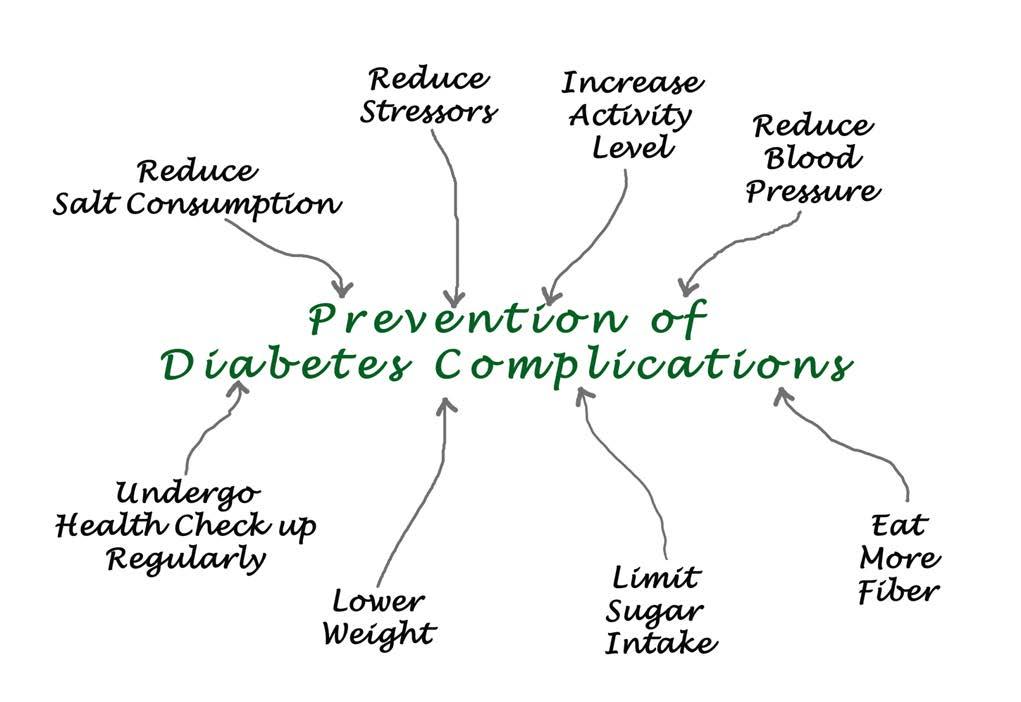DR. KAHN’S GUIDE TO AVOIDING A HEART ATTACK
 JOEL KAHN, MD, FACC
JOEL KAHN, MD, FACC

Heart disease is the number one cause of early and unexpecteddeathintheWesternworld.
Stop for a minute and think about that. One out of every three persons will die of heart disease. Real people. Like a 42-year-old accountant, a 56-yearold doctor, a 54-year-old stay at home mother, a 65-year-old surgeon, a 63-year-old heart surgeon. These are just some of the people I have known that have unexpectedly dropped dead of heart diseaserecently.Theyleftlovedonesthatwillmiss their presence forever and they were robbed of seeing sunrises and sunsets, weddings, grandchildren,vacations,andlaughter.
I do not want that to happen to you or anyone you love.Itismynumberoneprofessionalgoaltoteach as many people as possible that heart attacks are PREVENTABLE.
We have the science to prevent heart attacks, or at least 90% of them. Hundreds of thousands of people dying every year would not have died if theyreadandimplementedthisshortguide.
Please, read this, share this, and practice the simple lifestyle steps that reduce the chance of having a heart attack by nearly 90%. Don’t negotiate it, just do every part of the simple formulaforhealthandhappiness.
This guide explains the lifestyle that makes you heartattackfree.
PAGE 02

LIFESTYLE: THE KEY TO LIVING HEART
ATTACK FREE
If there was a new medication that dropped the risk of heart attack by 80-90% it would be an instant billion dollar drug. Pharmacies would run out of stock, doctors would prescribe it like crazy, and people would remembertotakeitdaily.
Well, there is no such pill nor do I think there will be but there is such a treatment. It is a lifestyle of health born out of many large scientific studies.
Let’slookatthosestudiestolearnwhatyouneedtodoeveryday.
Thefirststudydealtwithdiabetesprevention...
PAGE 03

STUDY 1
The Harvard School of Public Health reported on a study of 84,941 female nurses that were free of heart disease, cancer and diabetes. A low-risk lifestyle was defined as staying trim, eating a lot of plant fiber and polyunsaturated fats, regular moderate to vigorous exercise (at least 30 minutes a day), no smoking and drinking at least half an alcoholic drink daily. During follow-up, 3,300 women were diagnosed with diabetes. The single most important predictor was being overweight or obese. Sadly, only 3.4% of the women fit the entire profile of the low risk lifestyle. These women, however, had a 91% lower chance of diabetes compared with the other members of thestudy.
Bottom Line: Taking steps towards a healthy lifestyle is key to managing diabetes and reducing the risk of developing serious heartrelated complications. Research has shown that making wise lifestyle choices can reduce the likelihood of developing these issues by up to90%.
PAGE 04

STUDY 2
The INTERHEART study measured the risk of heart attacks in 52 countries and found 15,000 cases. They found nine risk factors which accounted for 90%-95% of the cases of heart attacks... and all of these factors canbecontrolled!Whatpredictedaheartattack?
They were smoking, elevated bad cholesterol, high blood pressure, diabetes, abdominal obesity (waist over 35 inches for a woman and 40 inches for a man), high mental stress, few fruits and vegetables daily, loweralcoholintakeandlackofphysicalexercise.
Bottom line: The question is, can you take charge of your life and create a lifestyle where you don’t smoke, have an occasional glass of red wine, learn stress management techniques like meditation, know and control your blood pressure, cholesterol and blood sugar and trim that waist down? Would that checklist be worth 95% freedom from a heart attack during your career and after? Do 9 out of 9 and you can nearly eliminate your risk of ever having a heart attack. Not a pilloranoperationbutadailylifestyle.Youcandoit!
PAGE 05
STUDY 3
Harvard researchers analyzed data from 43,000 men in the Health Professionals Study between the ages of 40-75 who had no heart disease at the beginning of the study. The healthy lifestyle subjects had normal weight, were non-smokers, were physically active for more than 30 minutes a day, used moderate alcohol, and had a diet comprised of morenearlyhalfhealthyplants.
Over the 16 years of follow-up, a heart attack developed in 2,183 men, someofwhichwerefatalheartattacks.Menwhohadfiveoutoffivelow risk characteristics had an 87% lower rate of heart attacks! During the study, men who made two or more lifestyle changes to move closer to theideallowriskgrouphadalowerriskofheartattacks,too.
Bottom line: It is never too late to change, and change should start today. These are five simple steps. Remember, don’t smoke, maintain your weight near goal, walk, have an occasional drink if not an issue, and eatplants,lotsofplants,everyday.Thatisnotahardlist.

STUDY 4

Swedish investigators studied over 24,000 women after menopause who were free of heart disease. 308 cases of heart attacks developed over six years of follow-up. A low risk diet (high scores for fruits and vegetable intake, whole grains, legumes, fish, moderate alcohol intake), along with not smoking, walking or biking 40 minutes daily, and maintaining a trim waistto-hipratioreducedtheriskofheartattacksby… 92%!
Bottom Line: Aftermenopause,womenareatincreased risk of heart attacks and stroke, but they can be almost completely eliminated by LIFESTYLE MEDICINE. Get on theprogramandliveheartattack-free.
PAGE 07

STUDY 5
Harvard scientists reported on over 43,000 men from the Health Professionals study and over 71,000 women from the Nurses’ Health Study. This time the risk of stroke was assessed and evaluated in terms of lifestyle habits in persons withnohistoryofstroke.
If you want to avoid approximately 50% of strokes, you would need to match the following healthy lifestyle habits: no smoking, a body mass index of under 25, 30 minutes a day of moderate activity, modest alcohol intake and a diet in the top 40% of healthy factors (eat your vegetables comesupoverandover).
Bottom Line: Strokes are devastating, careerending and often fatal. Cut your risk by 50% by followinglifestylerecommendationsderivedfrom over100,000persons.
PAGE 08
STUDY 6

In the MORGEN study, researchers in the Netherlands studied almost 18,000 men and women without heart disease. They followed them for up to 14 years, and in that time more than 600 of the group had heart attacks including deaths. They found that if people followed four steps theywereabletolowertheirriskofheartattacksby 67%:
1) averaging30minutesadayofphysicalactivity
2) eating a healthy diet in the Mediterranean style rich in fruits, vegetablesandwholegrains
3) notsmoking
4) enjoyingmorethanonealcoholicbeverageamonth
Peoplewhoaddedafifthhealthhabit—sleepingsevenormorehoursat night on average — lowered their risk of heart attacks by 83% compared tothosenotfollowingthesesteps.
Bottom Line: Inadditiontothepriorhealthrecommendations,youneed to sleep! Sleep lets your body recover from a tough day at the office, gym or in the car on the cellphone. Do not cut sleep out of your health plan. If you are not sleeping, see a specialist and find out if you have sleepapnea,whichcanbetestedforathomeinyourownbed.Atleast8 outof10heartattacksdon’tneedtohappen!
PAGE 09
STUDY 7

The Karolinska Study in Sweden examined morethan20,000menfreeofheartissues and followed them for 11 years. They found that there were certain habits that loweredtheriskofheartattacks,including:
1) a diet rich in fruits, vegetables, legumes, nuts,wholegrainsandreducedfat
2) notsmoking
3) moderatealcoholconsumptiondaily
4) thinwaistlines
5) more than 40 minutes of daily physical activity
Sound familiar? Men who followed all five of these lifestyle habits had an 86% lower chance of developing or dying of heart attacks than those who followed none. Sadly, only 1% of the Swedes studied followedallfivehabits!
Bottom Line: Why not join the 1% of people who practice all 5 health habits for a healthy heart? It'll take very little effort and won't cost too much either - and you'll get to be the top of the class with respect to your heart health, reducing your risk of aheartattackbynearly90%.
PAGE 10
SUMMARY: HEART ATTACK PROOF
PAGE 11 Don'tSmoke Walkatleast30minutes Eat5ormoreservingsoffruitsandvegetables Keepyourweightandwaisttrim
YOUR LIFESTYLE 1 2 3 4 5 You don’t need
$100,000 heart operation, a pacemaker or a stent
your heart healthy, to enjoy life, and to avoid a heart attack.
need to have a healthy lifestyle every day and you will feel so much better you will be thankful that you learned the steps. So join meinlivingaheartattackfreelifebybeingsureeverydayto: Good Luck! See you at 100!! 6 7 Sleep7hoursanight Enjoyasmallamountofredwineifnotanissue Haveasenseofgratitudeandlove
a
to make
You
ABOUT DR. KAHN
Joel Kahn, MD, FACC of Detroit, Michigan, is a practicing cardiologist, andaClinicalProfessorofMedicineatWayneStateUniversitySchoolof Medicine. He graduated Summa Cum Laude from the University of Michigan Medical School. Known as "America’s Healthy Heart Doc", Dr. Kahn has triple board certification in Internal Medicine, Cardiovascular MedicineandInterventionalCardiology.Hewasthefirstphysicianinthe world to certify in Metabolic Cardiology with A4M/MMI and the University of South Florida. He founded the Kahn Center for Cardiac LongevityinBinghamFarms,MIin2015.
Dr. Kahn has authored scores of publications in his field including articles, book chapters and monographs. He writes health articles and has 6 books in publication including Your Whole Heart Solution,DeadExecsDon’tGetBonusesandThe Plant Based Solution, and Lipoprotein(a): The Heart’s Silent Killer. He has had appearances on Dr. Phil, The Doctors Show, Dr. Oz, Larry King Now, and the Joe Rogan Experience. He has beenawardedaHealthHeroawardfromDetroit Crain’s Business. His podcast, Heart Doc VIP, is listenedtoworldwide.
Dr. Kahn can be found at www.drjoelkahn.com

 JOEL KAHN, MD, FACC
JOEL KAHN, MD, FACC










